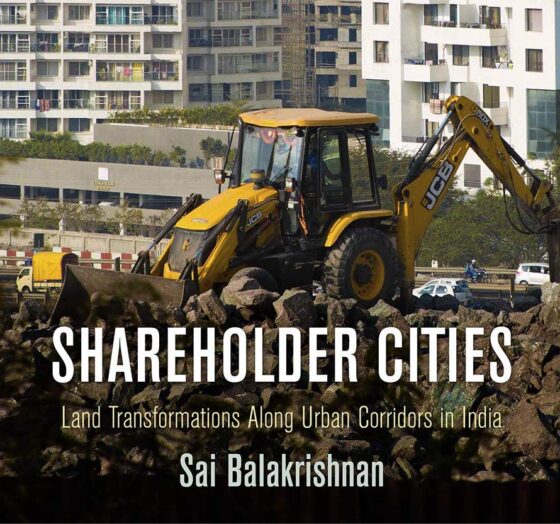
SPECIALIZATIONS
New Spatial Forms of Urbanization, Land-use changes
BIOGRAPHY
Sai Balakrishnan is associate professor of City and Regional Planning. She is also co-director of Global Metropolitan Studies and chair of the urban studies undergraduate major. Her research and teaching broadly pivot around global urban inequalities, with a particular focus on urbanization and planning institutions in the global south, and on the spatial politics of land-use and property. Balakrishnan holds a PhD from Harvard and Master in City Planning from MIT. Her current focus is a global-comparative analysis of the technopolitics of a land-use instrument, the transfer of development rights (TDR), in New York and Mumbai. She is also working with collaborators on a book on caste capitalism and the geographies of uneven development in India, from the late colonial period to the present.
COURSES TAUGHT
CYPLAN 115: Urbanization in Developing Countries (Fall 2020)
AWARDS & RECOGNITION
William Holland Prize for outstanding article published in Pacific Affairs in 2013
2014 ACSP (Association of Collegiate Schools of Planning) Gill Chin Lim Award for Best Dissertation on International Planning
Outstanding Master of City Planning Thesis, MIT, June 2008
Publications
Books
Refereed articles
Book Chapters
Balakrishnan, S. “Narratives of Waste Land: Politics of Land Commodification and Decommodification in Liberalizing India,” in Asher Ghertner and Robert Lake (eds), Land Fictions, Ithaca: Cornell University Press (Forthcoming).
Balakrishnan, S. “New Towns in India.” In Ann Forsyth and Rick Pieser (eds), New Towns, University of Pennsylvania Press (Forthcoming).
Balakrishnan, S. “Land-based Financing for Infrastructure: What is New About India’s Land Conflicts?” In R.Nagaraj and Sripad Motiram (eds), Political Economy of Contemporary India, Delhi: Cambridge University Press (2017).
Balakrishnan, S. “Peri-Urban Land Markets in Bangalore: New Conditions of Informality and a New Politics of Inclusion.” In Eugenie Birch, Shahana Chattaraj and Susan Wachter (Eds), Informal Real Estate Markets, University of Pennsylvania Press (2017).
Media articles
Book (2019)

In Shareholder Cities, Sai Balakrishnan argues that some of India’s most decisive conflicts over its urban future will unfold in the regions along the new economic corridors where electorally strong agrarian propertied classes directly encounter financially powerful incoming urban firms.
Balakrishnan focuses on the first economic corridor, the Mumbai-Pune Expressway, and the construction of three new cities along it. The book derives its title from a current mode of resolving agrarian-urban conflicts in which agrarian landowners are being transformed into shareholders in the corridor cities, and the distributional implications of these new land transformations.